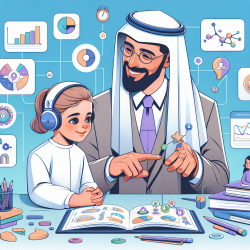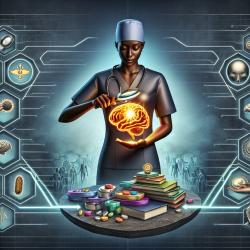As practitioners in the field of speech-language pathology, we constantly seek evidence-based strategies to enhance the developmental outcomes of children with profound intellectual and multiple disabilities (PIMD). The recent article "Simple ideas that work: Celebrating development in persons with profound intellectual and multiple disabilities" by Bullen et al. (2018) provides valuable insights and practical ideas that can be implemented in various settings, including online therapy services provided by companies like TinyEYE.
The interdisciplinary team behind this research worked over eight years in diverse, low-income contexts to develop sustainable, simple interventions that significantly improved the quality of life for individuals with PIMD. Their iterative action-learning approach—applying existing evidence, reflecting, and adapting strategies in collaboration with stakeholders—can serve as a model for our practice.
Key Findings and Practical Applications
The research outlines several straightforward, yet effective, interventions that can be easily integrated into daily routines. Here are some of the key ideas and their outcomes:
- Small Group Stimulation Time: Introducing a structured 1-2 hour morning routine that includes greeting songs, movement activities, sensory stimulation, and storytelling. This approach fostered communication, engagement, and creativity among clients and carers.
- Toy Library: Creating a library of appropriate, durable toys that encourage constructive play and sensory stimulation. Over time, carers became more involved in selecting and using toys, leading to improved client engagement and functional progress.
- Sensory Area: Designating a quiet space for sensory experiences, such as massage, listening to soft music, and exploring tactile objects. This routine was beneficial for clients with severe physical disabilities and those with challenging behaviors, providing a calming and rewarding experience.
- Themed Room: Setting up areas with specific themes (e.g., animals, occupations) to provide intellectual stimulation. This helped higher-functioning clients engage in directed play and learning activities, enhancing their cognitive and social skills.
- Obstacle Course: Establishing simple, accessible obstacle courses to promote physical activity. This not only improved physical endurance but also fostered social interaction and modified challenging behaviors.
- Individualized Lap Tray Messages: Creating personalized messages on tray tables to guide visitors and new carers in interacting with non-verbal clients. This initiative enhanced communication and inclusion, reducing stress for both clients and visitors.
- Wristbands for Drooling: Encouraging clients with mild to moderate drooling issues to use absorbent wristbands. This intervention promoted self-awareness and independence, reducing the need for bibs and improving client confidence.
- Individualized Seating: Assigning specific chairs to clients with their photos, ensuring appropriate seating during meals and activities. This system reduced conflicts and improved order during group activities.
- Individual Action Plans: Developing word pictures and specific goals for each client, displayed along with their photos. This approach facilitated team discussions, goal-setting, and consistent support from all staff members.
Encouraging Further Research and Implementation
The success of these simple ideas underscores the importance of ongoing support, training, and reflection in implementing sustainable interventions. Practitioners are encouraged to explore these strategies and adapt them to their specific contexts, whether in day care centers, residential facilities, or through online therapy services like those provided by TinyEYE.
Moreover, further research is essential to continue refining these interventions and exploring new approaches to enhance the development and quality of life for individuals with PIMD. By sharing our experiences and findings, we can collectively contribute to a more inclusive and supportive environment for these individuals.
To read the original research paper, please follow this link: Simple ideas that work: Celebrating development in persons with profound intellectual and multiple disabilities.










